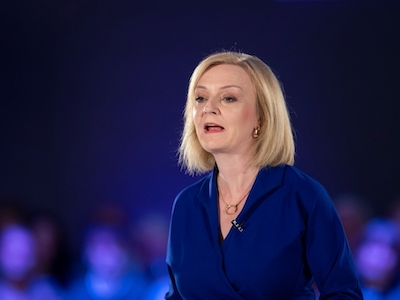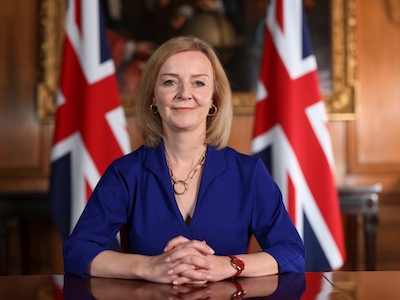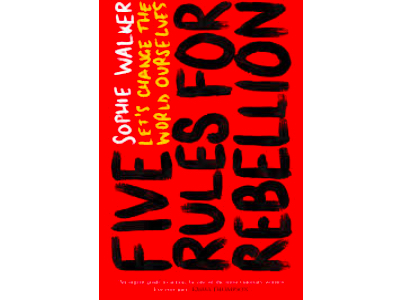Theresa May has been in political office as Prime Minister for 100 days.
In July, May became the second only woman to become Prime Minister of the United Kingdom, following on from Margaret Thatcher. On becoming PM, May also became the first woman to have held two of the Great Offices of State – the four most senior positions in the government.
May had previously defeated her opponent, Andrea Leadsom, in the leadership race and stepped into the role following predecessor, David Cameron’s resignation following Britain’s decision to leave the European Union.
Exiting the EU has played a large part in the prime minister’s political schedule and after 100 days in office, May is once again hitting headlines following her Brexit negotiations. In her first EU summit since she became Prime Minister, May will meet European Commission President, Jean-Claude Juncker to discuss an exit deal.
May was previously appointed as the Home Secretary and has been a Conservative MP since 1997. She has held a variety of different roles within the party including Shadow Secretary of State for the Family from 2004 to 2005; and Parliamentary Under Secretary of State for Women and Equalities from 2010 to 2012. Before embarking on her career in politics, May began her working life at the Bank of England.
Here, we take a look at her first 100 days in power:
Female representation in the Cabinet
When she was first elected, May was praised for introducing more women into the Cabinet. Women fill six of the 22 positions, including Amber Rudd, Secretary of State for the Home Department; Elizabeth Truss, Lord Chancellor & Secretary of State for Justice; and Justine Greening, Secretary of State for Education & Minister for Women and Equalities.
Speaking at the time a spokesperson for May said, “It was Theresa who set up the campaign to elect more female MPs to Parliament – and she has always believed that there should be more women in prominent government positions.”
‘A country that truly works for everyone’
During the leadership race May outlined her plan to highlight and improve social reform. She has previously said, “We need a government that will deliver serious social reform – and make ours a country that truly works for everyone.”
“Because right now, if you’re born poor, you will die on average nine years earlier than others.”
“If you’re black, you’re treated more harshly by the criminal justice system than if you’re white.”
“If you’re at a state school, you’re less likely to reach the top professions than if you’re educated privately.”
“If you’re a woman, you still earn less than a man.”
Fashion statement
During her short time as PM, Theresa May’s fashion choices have received both criticism and wide-spread support. May is known to be a lover of fashion and regularly wears distinctive shoes.
Despite this, it was reported that the prime minister had been urged by the Trades Union Congress (TUC) to set an example to sexist employers.
Speaking at a conference, GMB delegate Penny Robinson said, “Let the media see that you can be the most powerful woman in the country without needing to wear designer shoes to meet men’s expectations.”
However, media outlets suffered a backlash due to the way it reports on May’s fashion choices. Many argued that too much focus was made upon her physical appearance, while other’s argued it is sexist as male politicians do not receive the same critic.
During a TV interview May argued, “It is interesting that people focus on my shoes, I don’t think they’ve focused on Philip Hammond’s or Boris Johnston’s in quite the same way.”
“But look…it gives me an excuse to go and buy new shoes.”
‘Women are still not a political priority for this government’
However, some have criticised May, believing that she could do more for women’s rights.
In September, Labour MP Harriet Harman claimed that May was ‘no sister’ when it comes to women’s rights. Harman said, “We’ve got a new Tory prime minister – and she’s a woman. But like Margaret Thatcher before her, Theresa May is no supporter of women.”
The Women’s Equality Party have also voiced their concerns. The political party were leading the ‘100 days of May campaign’, calling for the prime minister to stop women paying the price for abuse; to introduce compulsory sex and relationships education; end detention of women seeking asylum; invest in childcare; ratify the Istanbul Convention; and commit to equal representation in parliament.
Speaking about May’s time in parliament, Sophie Walker, leader of the Women’s Equality Party said, “Theresa May’s inaction has shown that women are still not a political priority for this government.”
“The Prime Minister is not listening to women in the UK, and is failing to prioritise the policies that will transform millions of lives across the country.”
“We are listening. And we will make sure women are at the top of the agenda.”
“It is still a radical act to ask women what they want.”
“Many of the women we have spoken to already were surprised to be asked, and did not make the link between what they need in their daily live and what constitutes ‘politics’.”









